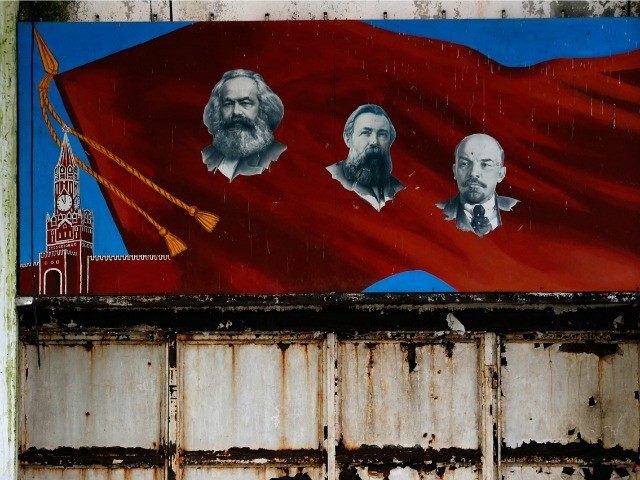Kiev (AFP) – Ukraine on Thursday outlawed Communist names, symbols and even songs in a fresh break with the country’s Soviet past as its soldiers fight pro-Russian separatists in the east.
The legislation, which also targets Nazi propaganda was adopted by 254 votes in favour in the 450-member parliament, or Rada.
It bans all symbols and propaganda representing “the totalitarian Communist and Nazi regimes” — from street names and flags, to monuments and plaques.
For the former Soviet republic it could mean a major overhaul of public buildings and town squares across the country, with Lenin Streets to be renamed and any remaining statue of the Soviet leader removed.
Even a towering Liberty-like statue 102 metres high (300 feet) and weighing in at 150 tonnes that greets visitors to Kiev will need a revamp. The mammoth “Motherland” statue holds high a huge shield emblazoned with the Communist-era hammer and sickle.
– Goodbye Lenin? –
The fate of the Communist leader Lenin’s many statues became the focus of debate during the late 2013 Maidan protests that led to the ouster of then pro-Russian president Viktor Yanukovych and sparked events that led to the war in the east.
As pro-Western protesters toppled Lenin effigies in rage, pro-Russian separatists in the east gathered at their feet.
Thursday’s ban comes as Kiev-Moscow ties hit an all-time low with the toll of over 6,000 mounting by the day in the war pitting government troops against rebels who often hanker after the Soviet Union.
“The USSR was a great country,” separatist leader Alexander Zakharchenko told AFP in the rebel bastion Donetsk, echoing President Vladimir Putin who has dubbed the collapse of the Soviet Union “the major geopolitical disaster of the century.”
Putin is accused by the West of arming the east Ukraine rebels to stop Ukraine looking to the EU and NATO for partnership, an allegation denied by Moscow.
Ukraine’s new legislation condemns “totalitarian Communist and Nazi regimes in Ukraine” and bans “all public denial” of their “criminal character” as well as the “production”, “circulation” or “public utilisation” of their symbols, except for educational or scientific purposes — or found in a cemetery.
A list of banned items includes the Soviet flag and anthem as well as monuments and historical plaques commemorating Communist leaders. Penalties for violating the law range from five to 10 years.
The anti-propaganda legislation said it concerned both Nazi symbols used from 1939 to 1945 as well as Communist ones from 1917 to 1991.
However a separate law adopted by the Rada on Thursday officially recognised the role of a nationalist group that fought for Ukraine’s independence in the mid-20th century and is still popular in western Ukraine.
The group, which during World War II leant towards German Nazis for a time before fighting them as well as the Soviet Union, are often decried in Russia as “fascist” hardline nationalists with too much influence in the Kiev government.
Some east European nations see Ukraine as the hero on the frontline of Russia’s ambitions. “When the sons of Ukraine are killed in eastern Ukraine protecting their independence, they also protect Europe,” Polish President Bronislaw Komorowski told the Kiev parliament Thursday.
“They protect it from the return of imperial thinking, from decisions that threaten the whole of Europe,” he said.

COMMENTS
Please let us know if you're having issues with commenting.